
Proven Entrapment Defense Strategies for Criminal Cases
You find yourself facing criminal charges, a situation you never anticipated. The weight of the justice system feels overwhelming, and terms like “entrapment defense” swirl around in your mind, leaving you with more questions than answers. It’s a term you’ve heard whispered in hushed tones, a possible lifeline in a sea of legal jargon. This feeling of uncertainty, knowing where to turn, is completely understandable. You’ll learn what constitutes an entrapment defense, how it functions within the legal system, and what steps you need to take if you believe you have been unjustly targeted. Don’t hesitate to reach out to Brennan Law offices if you are in need of a criminal defense attorney in Philadelphia.
Demystifying the Entrapment Defense
The entrapment defense arises when someone is accused of a crime they wouldn’t have committed. But what does that really mean? Imagine this: you’re walking down the street when someone approaches you, offering to sell you stolen goods.
Now, imagine the same scenario, but this time, the person persistently pressures you, even after you’ve refused multiple times. They might suggest you’re not “brave” enough or offer a ridiculously low price. This is the crux of entrapment – law enforcement or those acting for them provide the motivation and means for the crime, pushing you into a corner where you feel pressured to commit an act you otherwise wouldn’t.
The Legal Framework
Pennsylvania Criminal Code § 313 provides the legal groundwork for the entrapment defense. This law states that if law enforcement, or someone working with them, creates a situation where someone feels compelled to commit a crime they weren’t predisposed to commit, then that can be used as a legal defense.
Two key factors are central to a successful entrapment defense. First, you must prove that law enforcement or an associate induced you to commit the crime, meaning they planted the idea and provided the opportunity. Second, you must demonstrate a lack of predisposition to commit the crime.
Simply put, would you have committed the crime had law enforcement not intervened? If the answer is no, you may have a viable entrapment defense.
Subtleties and Variations of the Entrapment Defense
Two types of entrapment defenses exist: subjective and objective. The subjective approach considers the defendant’s predisposition to commit the crime. The objective approach centers on the government’s conduct in inducing the crime, focusing on whether their tactics were overly aggressive or would have induced a law-abiding citizen to commit a crime.
However, there’s a crucial exception – bodily harm. Even if entrapment occurs and can be proven, if you inflict bodily harm on another individual during the crime (other than the law enforcement officer involved), the entrapment defense will not lead to an acquittal. This exception highlights the seriousness of physical violence, even within the complex scenarios where entrapment comes into play.
Navigating the Entrapment Defense
If you think you might have an entrapment defense, finding a qualified attorney experienced in this complex area of the law is crucial. A skilled criminal defense lawyer in Philadelphia can help gather the necessary evidence to support your case. They’ll know how to effectively challenge the prosecution’s narrative and present a strong argument on your behalf.
Keep in mind, claiming entrapment defense puts the burden of proof on you, meaning your lawyer must convincingly demonstrate your lack of predisposition for the crime in question.
Navigating accusations and the legal complexities surrounding “entrapment defense” requires a strategic and knowledgeable approach.
Read More
How To Appeal Criminal Conviction Pennsylvania: A Complete Guide
You’ve just gone through the ordeal of a Pennsylvania criminal trial. The verdict is in, and it’s not what you hoped for. You’ve been found guilty. Feelings of confusion, anger, and fear might be swirling inside you. But don’t lose hope. The legal system allows for a process called an appeal, your chance to challenge the court’s decision. If you find yourself in need of a criminal lawyer in Philadelphia, give us a call today.
You might be thinking, “Appeal criminal conviction Pennsylvania – what does it all even mean?”. In essence, it’s your opportunity to fight for a different outcome. This comprehensive guide will help you navigate the road ahead, explore your options, and shed light on what’s involved in appealing a criminal conviction in Pennsylvania.
Understanding the Basics: Appeal Criminal Conviction Pennsylvania
An appeal isn’t a retrial. It doesn’t involve presenting new evidence or witnesses. Instead, an appeal in a Pennsylvania criminal conviction focuses on whether legal errors occurred during the original trial.
These errors need to be significant enough that they could have unfairly affected the outcome. Think of it like asking a higher court, the Pennsylvania Superior Court, to review the trial court’s actions for any mistakes.
Grounds for an Appeal Criminal Conviction Pennsylvania
There are specific grounds on which a criminal conviction in Pennsylvania can be appealed. Some common grounds include:
- Ineffective Assistance of Counsel: Did your trial lawyer provide inadequate representation? Did they fail to investigate leads, call crucial witnesses, or properly object to evidence? Proving this ground often involves demonstrating that a competent attorney would have acted differently and potentially changed the trial’s outcome.
- Prosecutorial Misconduct: Did the prosecution act improperly during the trial? This can include withholding evidence, making inflammatory statements to the jury, or introducing inadmissible evidence. Demonstrating this requires clear evidence that the prosecution’s actions violated your right to a fair trial.
- Improper Jury Instructions: Did the judge incorrectly instruct the jury about the law? Jury instructions are vital because they explain the legal principles the jury must apply to the facts. If these instructions are wrong or misleading, it could be grounds for an appeal.
- Insufficient Evidence: Even if there were no procedural errors, you can argue that the evidence presented at trial was insufficient to support the guilty verdict. This means demonstrating that a rational jury, considering the evidence in the light most favorable to the prosecution, could not have found you guilty beyond a reasonable doubt.
Time Limits: Act Quickly
In Pennsylvania, you only have a limited window to file an appeal for a criminal conviction. Typically, you must file a Notice of Appeal with the trial court within 30 days of the judgment of sentence, or 30 days from the denial of any post-sentence motions. This strict deadline underscores the need for immediate action after a guilty verdict is reached.
Navigating the Appeals Process in Pennsylvania
An appeal for a criminal conviction in Pennsylvania involves several steps, and navigating this complex process requires strict adherence to procedural rules. A general overview includes:
- Notice of Appeal: The first formal step in the appeals process involves filing a notice of appeal with the trial court clerk’s office. This document informs the court of your intent to appeal and is the first step toward a possible appeal hearing.
- Trial Court Record: After the notice of appeal, the trial court will compile the record of the case. This extensive document includes transcripts of all court hearings, motions filed, and evidence presented during the trial.
- Appellant’s Brief: You, as the appellant, will file an appellant’s brief outlining legal arguments supporting the claim that errors occurred during the trial. These arguments must be backed up by legal precedent, demonstrating why a new trial or other relief is deserved.
- Appellee’s Brief: The prosecution, acting as the appellee, has an opportunity to respond to your appeal. Their brief refutes your claims and argues why the lower court’s decision was correct.
- Oral Argument: While not always granted, oral argument provides an opportunity for both sides to present their case to a panel of appellate judges. Think of this as your attorney’s opportunity to further persuade the court to rule in your favor. Judges often ask pointed questions during this phase.
Do You Need an Attorney for an Appeal Criminal Conviction Pennsylvania?
Navigating the intricacies of criminal appeals is highly complex. The rules of procedure are stringent, legal arguments need meticulous crafting, and court deadlines are inflexible. Therefore, having experienced legal representation is critical in this situation.
While filing a notice of appeal without a lawyer is technically possible, attempting to handle the intricacies of the appeals process on your own is generally ill-advised. Experienced criminal appellate attorneys understand the nuances of legal arguments, case law, and procedural rules crucial to successful appeals.
What Can an Appellate Attorney Do?
Appellate attorneys play a critical role by providing expert advice and guidance throughout the appeals process. They can help you understand your legal options and develop a strong legal strategy. Here are just some of the things an appellate attorney can do:
- Identifying Appealable Issues: They meticulously review the trial court record, identify any legal errors, and determine if those errors justify an appeal. They will look for any violations of your rights or any mistakes that the court made that could have affected the outcome of your case.
- Researching Case Law: They thoroughly research legal precedents, relevant statutes, and case law to build persuasive arguments on your behalf. Strong legal arguments are essential for a successful appeal, and your attorney will use their knowledge and resources to craft the best possible arguments for your case.
- Drafting Persuasive Briefs: Appellate briefs are complex legal documents requiring specialized skills. Experienced attorneys craft compelling briefs highlighting trial errors and advocating for your rights. Your attorney will ensure that your brief is well-written, thoroughly researched, and filed correctly.
- Presenting Oral Arguments: Appellate courts often permit attorneys to present oral arguments, offering an opportunity to directly address the judges. This is a crucial opportunity to persuade the judges to rule in your favor. Your attorney will use their advocacy skills to present your case in the strongest possible light.
If you’ve been convicted of a crime in Pennsylvania, seeking the counsel of a skilled appellate attorney is vital to ensuring your rights are protected. An attorney can help you understand your legal options and can fight for your rights in court.
Facing a criminal conviction is undoubtedly a stressful time. Still, it’s crucial to remember that a conviction in a Pennsylvania court is not necessarily the final word. Appealing a criminal conviction in Pennsylvania allows for the possibility of overturning the decision, reducing your sentence, or securing a new trial.
With so much on the line, obtaining legal representation from a lawyer specializing in appealing criminal convictions in Pennsylvania will drastically affect your chances of a more favorable outcome. We provide the best criminal defense lawyers in Philadelphia if you ever in need of a lawyer.
Read More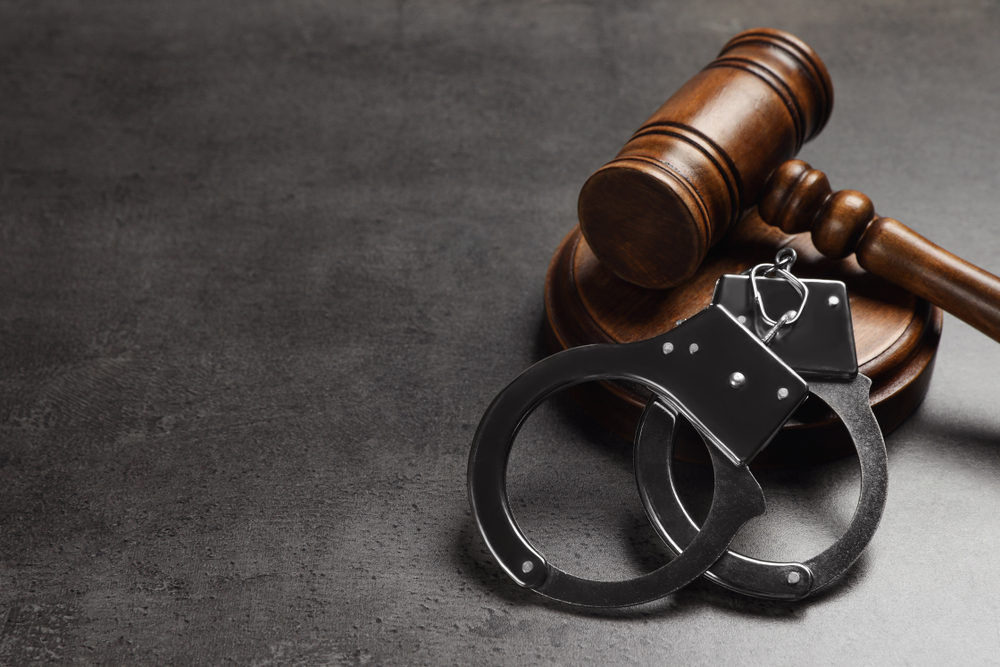
Probation for Gun Charge: Can I Get It & What to Expect
Facing a gun charge is a serious matter with potentially life-altering consequences. The uncertainty of the legal process and potential penalties can be overwhelming. One common question people have is, “Can I get probation for a gun charge?” The answer, like many things in law, is: it depends. Whether you’re facing charges in Philadelphia, Texas, California, Georgia, or NYC, understanding gun laws and the possibility of probation is crucial. Our criminal lawyers in Philadelphia can help you with your defense and provide you the best recommendation along the way. You will need a strong criminal defense attorney in Philadelphia when dealing with gun charges, give us a call today.
Factors Influencing Probation for Gun Charges
The possibility of receiving probation for a gun charge isn’t a simple yes or no question. Instead, numerous factors contribute to a judge’s decision. This makes having experienced legal representation essential for achieving the best possible outcome. Here’s a breakdown of key factors that often come into play:
Severity of the Offense
The nature of the gun charge significantly influences the potential for probation. Less severe offenses, like carrying a concealed weapon without a permit, may result in probation, especially for first-time offenders. However, offenses involving using a firearm in a crime will likely lead to harsher sentences.
Criminal History
A clean criminal record goes a long way in the eyes of the court. Judges are more likely to consider probation for gun charges when dealing with someone with no prior convictions. Conversely, someone with a history of violent offenses or repeat gun charges will face an uphill battle for a probationary sentence.
Plea Agreements
Negotiating a plea deal with the prosecution can be instrumental in securing probation for a gun charge. This often involves pleading guilty to a lesser offense in exchange for a lighter sentence. The success of a plea bargain heavily relies on the skill and experience of your defense attorney and the specific circumstances of your case.
Defendant’s Cooperation
Demonstrating genuine remorse, taking responsibility for your actions, and cooperating with law enforcement can work in your favor. It shows the court you are serious about rehabilitation and less likely to re-offend. This might involve providing helpful information related to the case or expressing willingness to participate in rehabilitation programs.
Sentencing Guidelines and State Laws
Each state has sentencing guidelines and mandatory minimums that impact probation for a gun charge. These vary significantly depending on the location. For example, in Pennsylvania, certain gun offenses carry mandatory minimum sentences, leaving judges with limited discretion regarding probation. Your attorney must be well-versed in these guidelines and advocate effectively on your behalf within those constraints.
Navigating Probation for a Gun Charge
Probation serves as a way for individuals convicted of a crime to reintegrate into society under supervision. While it allows you to avoid or shorten a jail sentence, probation comes with conditions you must strictly adhere to. Violating any of these can have severe repercussions, often leading to incarceration.
Understanding the Conditions of Your Probation for a Gun Charge
Probation conditions often include:
- Regular meetings with a probation officer.
- Maintaining employment or education.
- Drug and alcohol testing.
- Substance abuse treatment, if deemed necessary.
- Restrictions on firearms possession and association with certain individuals.
Potential Challenges During Probation
Navigating probation can be difficult, requiring significant life adjustments. Adhering to the imposed restrictions, finding and maintaining stable employment, addressing potential substance abuse issues, and consistently attending meetings with a probation officer all demand dedication and discipline. It is essential to have a strong support system during this process and actively utilize available resources.
Seeking Experienced Legal Counsel
The complex nature of gun laws and nuances of probation means navigating these challenges alone is ill-advised. Seeking help from a skilled criminal defense attorney who specializes in gun charges can significantly affect the outcome of your case. A dedicated attorney provides invaluable guidance and legal advice tailored to your circumstances.
What is the typical length of probation for gun charges?
The duration varies based on state law, the nature of the gun charges, and individual circumstances. In general, probation for such offenses ranges from one to five years, though it can be longer in certain situations. Your attorney can provide insights based on your specific circumstances.
Will I have a criminal record after probation for a gun charge?
Completing probation generally results in a criminal record. The impact on employment and housing can be substantial. However, some states provide options for sealing or expunging records following successful completion, though eligibility depends on various factors and state law. Discuss these options with your attorney to see if pursuing those is viable in your case.
Obtaining and adhering to the terms of probation for a gun charge is entirely possible. This is especially true when you understand the intricacies of the law and work alongside an experienced attorney. Probation serves as a crucial step towards rebuilding your life after encountering legal trouble. Taking the situation seriously, complying with the terms, and seeking appropriate help can make a significant difference in successfully completing your probation for a gun charge and working towards a brighter future.
Read More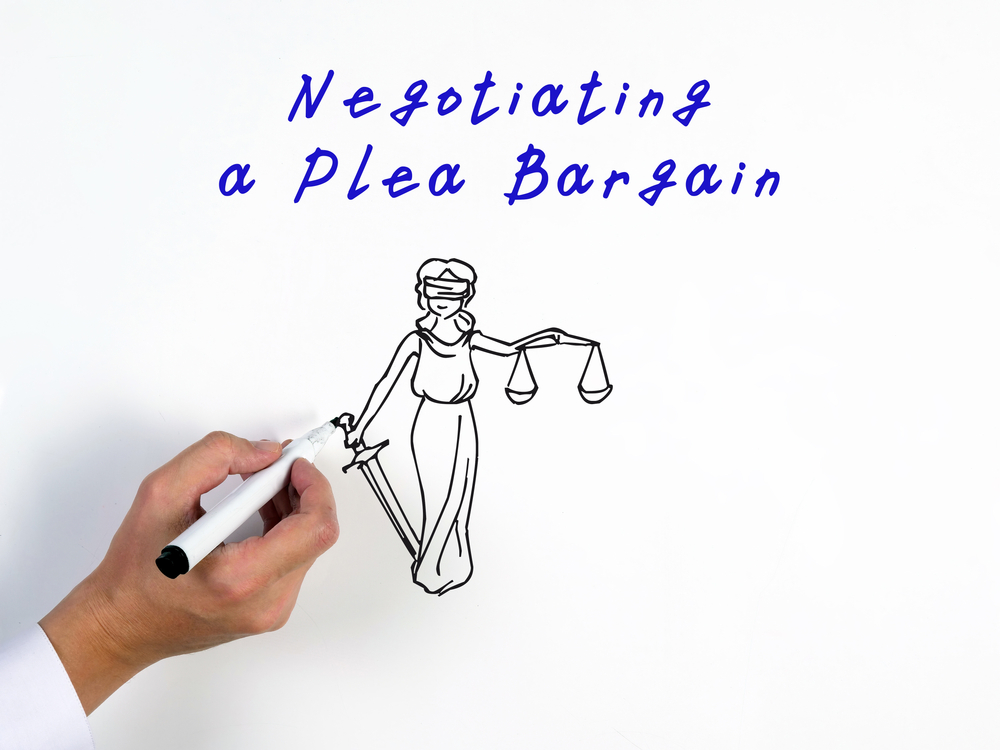
Plea Bargains vs. Going To Trial
Having legal issues can disrupt your life in a big way. It’s important to have attorneys who understand your needs and represent your best interests. In some cases, that might involve negotiating a plea, also called plea bargaining. At Brennan Law Offices, we have experienced Philadelphia assault lawyers ready to come to your aid. Whether that means assembling the evidence to take your case to court or preparing you for a plea bargain, our team will walk you through each step along the way.
What Is a Plea Bargain?
A plea bargain is a written agreement between the defendant and the prosecution. When entering a plea bargain, the defendant agrees to plead guilty. In exchange, the prosecution may lower the severity of the charges or offer a less severe sentence. Although it’s not ideal, it may benefit you to consider a plea bargain if the prosecution has a strong case against you. Your Philadelphia criminal defense lawyer can help you weigh the pros and cons before you make a final decision.
There are many reasons your attorney may recommend a plea bargain. It all depends on the circumstances of your case. Below, find key scenarios in which your lawyer may recommend negotiating a plea.
The Prosecution Has Overwhelming Evidence Against You
Whether you’re guilty or innocent, your attorney will consider the case the prosecution has against you. After weighing all the circumstances, your criminal defense attorney will make the best possible recommendation for your future. When overwhelming evidence is stacked against you, a plea bargain can protect you from the worst-case scenario. If you are unlikely to win the trial, your attorney will help you get the best deal possible.
The prosecutor may have weak areas in their case, so they will offer reduced charges. Our attorneys will always respect your wishes regarding whether or not you would like to accept a plea bargain. However, you’ll always get an honest answer based on the facts.
What Are the Benefits of a Plea Bargain?
There are many benefits to accepting a plea bargain under the right circumstances. Some of these benefits include the following:
- Less jail time: Plea bargains often take years off of recommended sentences.
- Settle out of court: Criminal defense trials can drag on and cost thousands of dollars. Accepting a plea bargain can spare you from the emotional trauma of a court case. It could also end up saving you money.
- Reduced charges: If you agree to plead guilty to lesser charges, you could end up with a shorter sentence and less severe charges on your record.
If there are other defendants involved in the criminal case, the prosecution may ask you to testify against them. In return, they may offer a plea bargain.
When Should You Walk Away from a Plea Bargain?
If your criminal defense attorney believes that the prosecution has little evidence, they may recommend fighting it out in court. Alternatively, if the plea bargain doesn’t offer significant benefits, you could be better off going to trial.
Your attorney acts as a guide through the legal process. Your defense attorney will advocate for options that promote your best interest. You will also receive all the information needed to make the best decision for your future.
Examples Where a Plea Bargain Is the Best Option
A man is arrested for possessing cocaine with the intent to sell it. Undercover police record the transaction and find a quantity of drugs in the man’s car. The man’s attorney may recognize that there is overwhelming evidence against the defendant. In this case, the criminal defense attorney may negotiate with the prosecution to reduce the charges.
Crystal steals money from her employer’s bank account. She covers up the theft by changing financial records. Her attorney finds that the discrepancies can be explained by mistakes as well as embezzlement. In this case, Crystal agrees to plead guilty to charges of accounting errors instead of going to jail. She agrees to repay the funds.
Caleb agrees to drive the car for two friends who want to commit a burglary. The police have evidence against Caleb but not his accomplices. Caleb’s attorney negotiates a plea bargain in return for the defendant’s cooperation with the prosecution.
Contact a Professional Criminal Defense Attorney Today
Need more information about the pros and cons of accepting a plea bargain? Contact the attorneys at Brennan Law Offices to set up a free consultation today
Read More
Criminal Appeals: Seeking Justice After Conviction
Being accused of a crime will be overwhelming, and working with a criminal defense lawyer is essential. If the court case has finished and you find you have been convicted, you may feel helpless. However, there are often circumstances where it will be to your advantage to appeal your criminal conviction. If your conviction came due to a guilty plea, your right to an appeal isn’t automatic. Under those circumstances, your attorney will have to request an appeal from the appellate court, and that court must grant you the right to appeal.
If your conviction resulted from a judge’s decision, the defendant always has the right to appeal. If the conviction occurs in a case that imposes a death sentence, the defendant always has the right to appeal. You may be interested to know that if the appeals court judges the defendant not guilty, the prosecution cannot appeal that decision. The prosecution team is not allowed to dispute a “not guilty” verdict, which would result in “double jeopardy” for the defendant, violating the Fifth Amendment.
Grounds to Request an Appeal
Typical causes for an appeal include legal error, juror misconduct, and insufficient defense by your attorney. You have the right to appeal the court’s decision, and you must initiate the appeal action. An attorney must file a Notice of Appeal with the appellate court in a timely manner. The deadline for filing will vary by state or federal court, so let your attorney know about your wish to appeal as soon as you make that decision.
After filing for an appeal, the lawyer handling the appeal will request a transcript of your court case. If your appeal involves your sentence, the portion of the court case involving the sentence will be vital. It’s important to note that if your sentence is the only part of your conviction you’re appealing, your attorney may request a motion for resentencing. If the court accepts that the sentence was an error, you won’t have to undergo a full appeal process, and your sentence will be corrected.
Turn to Us at Brennan Law Offices
If your case is being appealed, we understand how urgent an appeal process feels for you. We are experienced in handling cases for clients who have been convicted of state and federal charges. Our attorney, William J. Brennan, has been admitted to practice before the US Supreme Court. Attorney Brennan has also been listed as one of Philadelphia’s Super Lawyers by Law & Politics Magazine. When you work with our team for your appeal, you will feel the impact of our years of experience.
Whether you present your criminal case to the court for the first time or engage in an appeal, you’ll want to find the best criminal defense attorney in your area. An area attorney will not only be familiar with the law, but they will also know the court system in your area and how to present your case or appeal in the best possible way. At Brennan Law Offices, our experienced team has more than 30 years of experience working for clients in Pennsylvania and New Jersey.
Call Us Today for an Appointment
Navigating the criminal justice system is overwhelming, and you’ll want an attorney to vigorously protect your name and freedom. There are many types of criminal law cases, including assault, DUI, theft, and drug charges. If you’re looking for a drug lawyer in Philadelphia, PA, our team at Brennan Law Offices is ready to apply our knowledge of those cases to your unique situation. Call us for an appointment today, and let’s discuss your path to appeal.
Read More
Domestic Violence Laws in Philadelphia
If you have been accused of domestic violence or sexual assault, it can lead to severe consequences. These charges are taken very seriously, and you may lose your right to return to your home. You may be placed in jail and may even lose your job. Here are some guidelines for laws regarding sexual assault and domestic violence.
Title PFA Charges
In Pennsylvania, a domestic violence charge is classified under Title PFA (projection from abuse) laws, which means that if you own a firearm, you must surrender it. You can’t give your firearm to a friend or family member; you must surrender it to a law enforcement authority or your lawyer.
If you have a child with the person you are accused of hurting or abusing, you will be in danger of losing custody of your child. These charges can also mean you are in danger of losing your right to return to your home.
If you are accused of rape, your attorneys can explain the differences between felony rape, statutory rape, and deviant sexual intercourse. To clarify: a felony rape would result from a person who subdues the victim with drugs or alcohol so they don’t know the act is taking place. A felony would also be charged if the victim is mentally impaired and doesn’t understand what is happening to them. Statutory rape is charged when someone has sexual intercourse with a person under the age of 16.
Charges for Deviate Sexual Intercourse
If the attack also incurred an injury on a victim younger than age 13, this would be called “involuntary deviate sexual intercourse with a child with serious bodily injury.” Domestic violence and sexual assault charges have varied penalties, depending on the age of the victim and the nature of the sexual acts. You will need an attorney who will listen to your account of the circumstances and will work tirelessly to defend you.
Our most recent information reveals that a conviction for a felony could result in fines from $10,000 and up to $25,000. You may be imprisoned for up to 20 years. Misdemeanor convictions could be fined up to $5000, and the accused could be imprisoned for one to two years. When you add these consequences to the prospect of losing your home, job, reputation, and family, you can’t afford NOT to have an experienced attorney.
Experienced Attorneys in Philadelphia
If you have been accused of one of these crimes, you need an experienced attorney to handle your case. If you need a team of dedicated domestic violence lawyers in Philadelphia, you can find the right person to represent you at Bill Brennan Law Offices. We’ve been defending people charged with domestic violence for over 25 years. We will use our experience to support you through every step of the process.
Although we have great sympathy for those who are victims of domestic violence, we also know there are times when these charges can be exaggerated or even false. We understand the laws and guidelines of these charges. We know how devastating it can be to be accused of a criminal offense. We want to try to help you regain the use of your home as soon as possible, restore your reputation, and protect your freedom.
Call Us Today for an Appointment
Sexual assault charges carry a threat of lifelong loss of reputation, as they are considered to be criminal charges. If you are facing sexual assault charges, and you’re looking for a Philadelphia sexual assault lawyer, the attorneys at Bill Brennan Law Offices will work vigorously to secure your freedom. Call us for an appointment today, and let us defend you against these charges.
Read More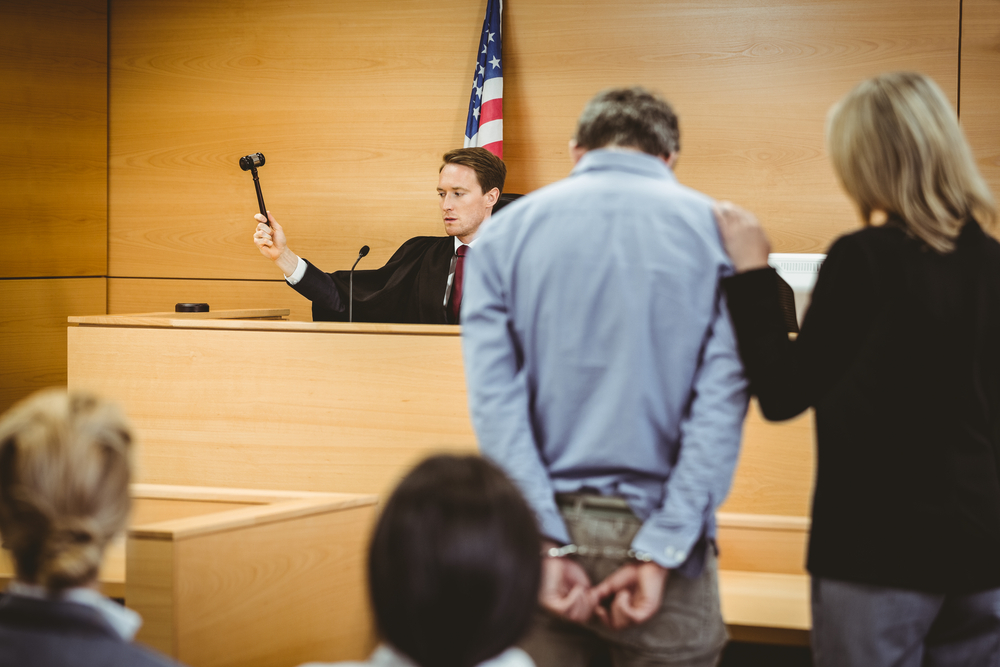
Common Sentencing Alternatives
Are you a defendant in a criminal case that constantly makes you fear the verdicts you will suffer in the end? It’s a must for anyone facing a court case to understand the decision of the court related to the verdict. It’s also crucial to have an attorney with in-depth knowledge of the impact of the alternative sentencing method on the verdict, either indirectly or directly. In this article, we’re going to view the typical sentencing strategies at the trials and their effect on your life.
Importance of Hiring a Skilled Criminal Attorney
Before getting into the fine intricacies of the various possible sentencing terms, let us be clear about the need for bringing in a competent criminal attorney to fight the battle for you. The role of an experienced lawyer is to provide legal advice that is suitable for your problem, and to negotiate with prosecutors and eventually intend to give an outcome in favor of you in your case.
Probation constitutes a key alternative to incarceration, as the defender is released into their community under the supervision of the court and the terms set by the court. These conditions can be the result of having regular meetings with a probation counselor and attending counseling sessions, rehabilitation, and behavior control centers and programs.
Rather than the usual option of serving time in jail or prison, a judge may instead order the defendant to do a certain number of hours of community service. It also gives a chance for a person to exhibit a healthy pattern of thought by giving back to society, and, at the same time, he/she isn’t allowed to stray from court-appointed instructions or guidelines.
On some occasions, the judge may grant the defendant to serve the sentence at home, under electronic monitoring. In this case, the individual can do their activities in a mostly normal way and still be restricted to their residence at specific hours. If the crime was a victim who suffered financial losses, the court can instruct the perpetrator to make restitution payments. In such a way, the victim can receive compensation for the existing damage, which is usually put in place during sentencing.
Drug and alcohol treatment programs can also be included in the sentencing process as an alternative to a prison sentence. For example, in drug abuse cases, judges may order defendants to go through treatment as part of the sentence. This focuses on the person’s needs and the reasons behind the behavior, as well as on offering the necessary help in conquering the addiction.
Besides imposing normal sentencing, a judge may, additionally, offer deferred adjudication, and the defendant will simultaneously be required to comply with conditions stipulated by the court, as well as to have the trial suspended upon successfully completing the program. This may constitute a new opportunity for some people in terms of not being permanently restricted.
If you’re faced with a DUI charge in Pennsylvania, it’s imperative that you look for the assistance of established PA DUI lawyers. If you’re lucky enough to hire a professional lawyer, they’ll give you legal representation, negotiate with prosecutors, and sort the matter out in such a way that it doesn’t affect your future too adversely.
Learn More Today
Knowing the types of sentencing alternatives that might be applied to criminal cases is critical if someone is facing legal issues. Through hiring a competent defense lawyer and examining feasible alternative sentencing options, individuals strive for what would be a favorable outcome for their case. Bear in mind that every case is individual and, therefore, it’s important to find advice that would suit your exact situation.
If you would like to find out more information or details about criminal defense options, please reach out to the best criminal attorney in Philadelphia, or a PA DUI attorney. Our team at Brennan Law Offices are standing by to assist you.
Read More
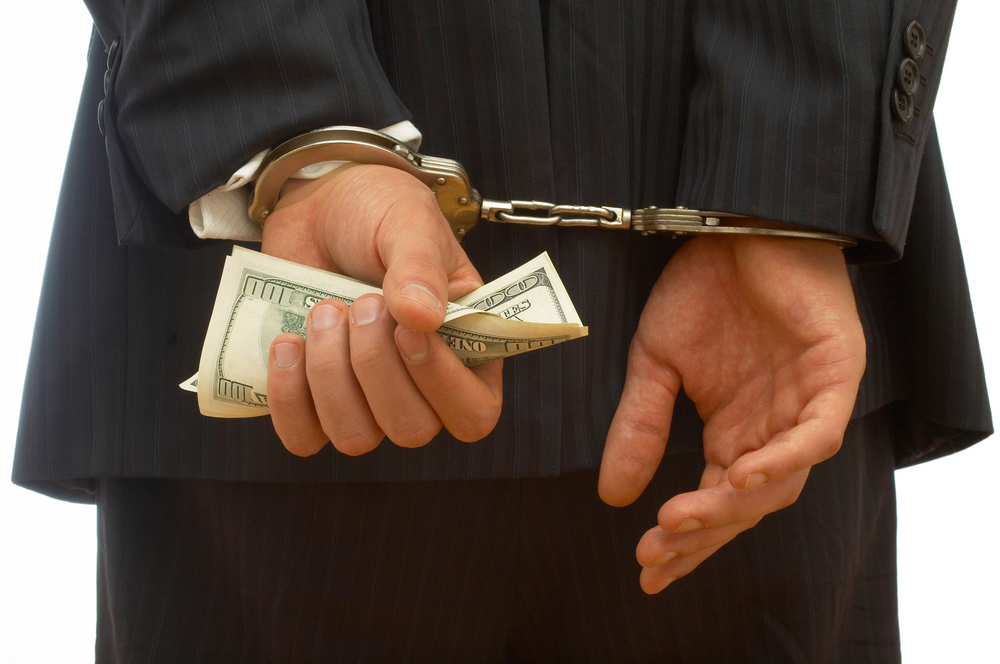
White-Collar Crimes: Fraud, Embezzlement, & More
White-collar crimes get their classification from the fact they’re non-violent and financial in nature, and typically committed by professionals in a variety of fields. Banks, healthcare organizations, and even governments are vulnerable to white-collar crimes that result in the loss of money through fraud, money laundering, and overall corruption. There are a number of reasons why someone would involve themselves in this type of activity, but the motivating factor is almost always money.
If you’ve found yourself engaging in this type of crime, you’re going to need the top white-collar crime attorney in Philadelphia to help you defend yourself and improve your chances of a good outcome. In the meantime, here’s a look at commonly committed white-collar crimes and their defining actions.
Fraud
Fraud comes in many forms, but the mechanism and goal of any type of fraud is to take money under the guise of a legitimate purpose from a trusted source, and then steal or use the money for other purposes. There’s typically an element of a promise to return on the investment that never really materializes. Ponzi schemes are the simplest form of fraud, but other types of fraud include:
- Corporate fraud
- Debt elimination schemes
- High-yield investment promises
- Identity theft
- Fictitious banking
Embezzlement
Embezzlement is a type of financial crime that’s committed against an employer. One or more employees engage in the act of diverting or misappropriating funds that belong to the business and covering up the act by altering the books. Those engaging in this type of theft typically start out by taking small amounts that may not be noticed and hiding the money until they can remove it from the premises through physical or electronic means.
Money Laundering
Money laundering is the act of taking “dirty” money and moving it through a legitimate business to “clean” up the funds. For example, dirty money is run through the register of a business that looks to be operating according to the law. The money that’s been earned through illegal activities is then rung up as sales made by the business, then placed into bank accounts. Taxes are typically paid on the laundered money to help make the money look like it was earned legitimately.
Insider Trading
Insider trading is the act of using knowledge to affect the share price and/or company valuation before the information is made public. It’s considered to be unfair to the public as it results in the artificial inflation of the true value of the company. Insiders can use their knowledge to inflate the price of the stock, sell their shares, and cause the shareholders to lose money that may never be recovered.
Intellectual Property Theft
Intellectual property (IP) theft consists of stealing ideas, creative works, trade secrets, and ideas that were developed by an individual or corporation. Those who participate in this type of crime are usually employees who have access to the IP. Most of the time, IP theft consists of selling the work to the highest bidder as opposed to outright infringement.
Call the Brennan Law Offices Today for a Defense Against Charges of White-Collar Crimes
If you’ve found yourself charged with a white-collar crime, you’re entitled to defend yourself and protect your reputation. Contact us at the Brennan Law Offices for a consultation and learn more about why we’re the top criminal lawyers in Philadelphia. We only practice criminal law, and we’re fully invested in protecting your rights while providing you with the best legal representation possible.
At Brennan Law, we pride ourselves on taking care of our clients and making sure they know what’s going on with their case. We discuss the full implications of your case, provide you with regular updates, and use our skills to deliver a strong and aggressive defense on your behalf.
Read More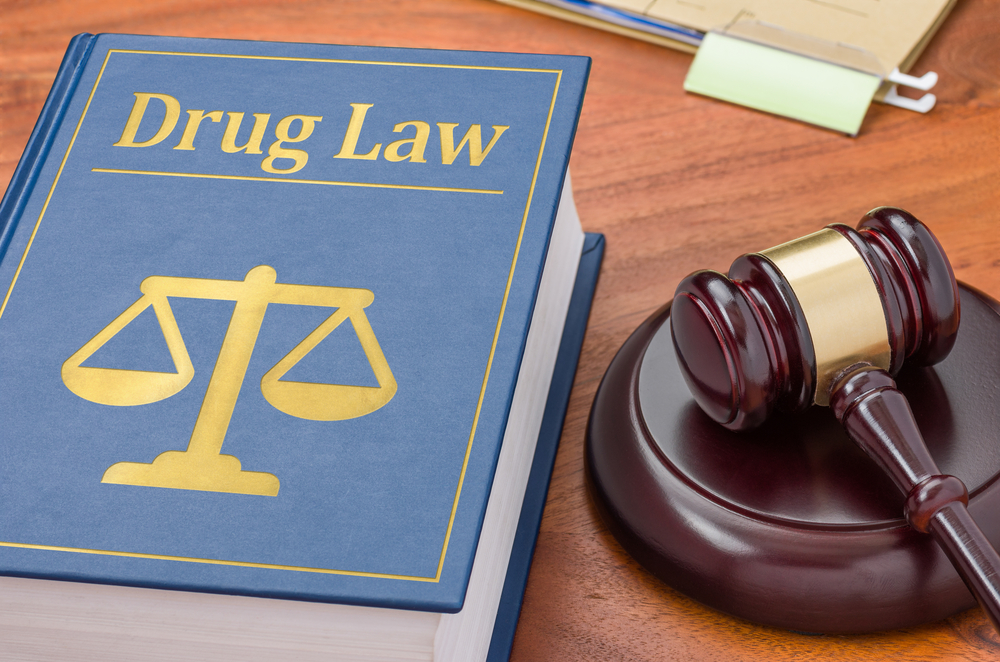
Legal Options For Non-Violent Drug Offenders
A drug offense can have serious repercussions, but the state of Pennsylvania understands that non-violent offenses may benefit more from intervention than punishment. If you’re a first-time offender facing non-violent drug possession charges, you’ll still face some legal consequences if convicted, but you have a few options for avoiding the more severe outcomes.
Section 17/Probation Without Verdict
One program is known both as Section 17 and as Probation Without Verdict. This is a great option for those who have no prior criminal history because the result, if you complete the program, is that the charges are dismissed. Essentially, the program is what the name says it is. You follow a specific set of requirements, akin to probation, without being actually convicted. Once you complete those requirements, as mentioned, you get a dismissal. It’s not available to anyone who has prior criminal records or who’s being charged with anything more serious than simple possession, but for first-time offenders charged with just simple possession, it helps keep their record clean.
Accelerated Rehabilitative Disposition
This is likely the most basic program available. It’s for first-time offenders and like PWV, offers pre-trial steps that allow you to have the charges dismissed. However, you have to complete the steps in a year. The steps can vary but typically include drug tests and community service, along with counseling. If your offense is deemed to be among the more minor, this could be an appropriate step for you. However, it’s imperative that you have a lawyer helping you to get in because the program won’t accept everyone.
Drug Court
What if you’re charged with possession with intent to distribute? You’re not eligible for Section 17 or ARD, but you can go to Pennsylvania’s Drug Court if the reason you were trying to sell drugs was to support your own drug habit. In other words, an addiction drove you to try to get money through selling drugs, to buy more drugs. Again, this program is not for people with prior offenses, and it is not easy to complete. But it’s a lot better than being convicted, facing fines and jail time, and having a permanent criminal record.
First, you have to be accepted into the program at the Drug Court, so be patient with any questioning, and consult with a lawyer beforehand to ensure you know what to expect. Once accepted, you’ll get a series of requirements, almost like you do in the PWV program, but in this case, you’ll have to take drug tests, meet with counselors, and go through a series of different steps all designed to help you leave drugs behind. As with PWD, once you successfully complete this, you’ll have your charges dismissed.
Of course, if you want to fight the charges instead, there are defenses you can use if you can prove them. Do not attempt to fight them on your own, however, as court can be very difficult to get through when you don’t have the legal knowledge yourself. If you didn’t know you had drugs on you (maybe someone planted them), if you think the search that found the drugs was done illegally, or if you have any other proof that could save you from conviction, you’ll want to speak with a lawyer.
Philadelphia criminal lawyers at Brennan Law Offices can help you determine whether fighting the charges or accepting a drug diversion program offer would be better. These are serious charges, so you need the best drug case lawyer around. The best criminal lawyers in Philadelphia want to see you get the best outcome possible, so call today to discuss your case.
Read More
Know Your Rights: What To Expect During Arrest & Interrogation
Getting arrested after committing a crime, no matter how minor or serious, begins a process that can see your rights challenged by the government. It’s the role of the police to collect evidence about you and your actions before, during, and after an incident to determine your involvement in the situation. The experience is designed to be uncomfortable and put you off your guard in the hopes that you won’t invoke your right to silence and your right to be represented by a criminal defense attorney in Philadelphia.
What Happens During an Arrest
When a police officer has made a decision that you’re a suspect, they’ll detain you and place you under arrest. That involves the police officer informing you that you’re under arrest, then being handcuffed and placed in the back of a patrol car. You’re then transported to the nearest police station for processing and detained while the initial investigation is being conducted.
You may be placed in a holding cell or in an interrogation room, depending on the reason why you were arrested. In the event you were arrested for DUI, you’ll get an opportunity to call the best DUI lawyer in Philadelphia for legal assistance after you’ve had your blood alcohol checked and put through the booking process. If you were involved in a criminal case, you’ll be put through an interrogation, so the police can try to learn more and charge you with an offense that they feel is appropriate.
How an Interrogation is Handled
At some point, you’re read your Miranda rights, which enforces your right to stay silent. It also prevents the police from using anything you’ve said against you prior to being Mirandized. After your Miranda rights are read, the police settle in to start asking you questions about the incident. This is where you say nothing and invoke your right to an attorney. Nothing you say at this point is going to work in your favor, and you preserve your rights by asking for a lawyer.
What Happens After the Interrogation is Completed
Once you’ve declined to speak, the police are under no obligation to let you go. You may wind up being put in a cell, then wait to go before a judge to get a bond for release. You’ll have to return to court on the specified date to start the process of being judged and handed a punishment or sentence. Not saying anything at all and retaining a criminal attorney helps you improve your odds of getting a lighter sentence.
The Importance of Saying Nothing at All Times
Oftentimes, people talk to the police during their arrest and subsequent interrogation in the hopes they’re going to go free. All they have to do is convince the police officer or detective that they’re innocent by talking their way out of the situation. The fact is, once the police have decided that you’re a potential suspect, they’re not going to let you go that easily, and they’re not going to listen to what you have to say.
You are required by law to give the police your real name and address during the time you’re in custody, but you are under no obligation to say more than that. If the police try to pressure you into giving information at any point, you can politely decline and say that your lawyer advised you to not speak to the police.
Call the Brennan Law Offices Today for Help With Your Case
At the Brennan Law Offices, we’re here to help you with your criminal charges, no matter if it’s DUI, burglary, or assault. If you’ve been arrested for a crime of any type, contact us immediately, so we can get started on your case. Remember to always stay silent and let us help you with your charges by speaking for you in a court of law.
Read More